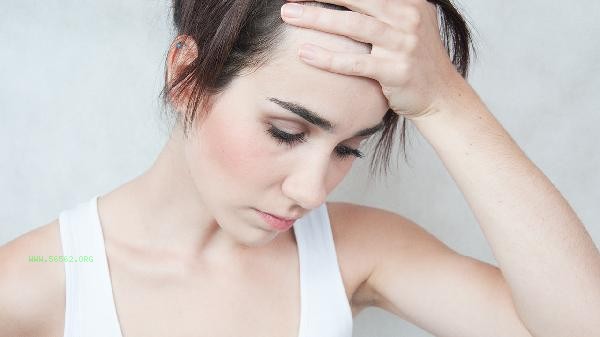Female menopausal bloating may be related to hormone fluctuations, gastrointestinal dysfunction, improper diet, mental stress, chronic diseases, and other factors. Abdominal distension is a common symptom of menopause, often related to changes in digestive system function caused by a decrease in estrogen levels.

1. Hormonal fluctuations
Decreased estrogen levels can affect the smooth muscle contraction function of the gastrointestinal tract, leading to slower intestinal peristalsis. This physiological change can easily cause abdominal bloating, which may be accompanied by changes in bowel habits. It is recommended to help regulate hormone balance through regular sleep and moderate exercise.
2. Gastrointestinal dysfunction
Menopausal autonomic nervous system dysfunction may lead to functional dyspepsia. Abnormal gastrointestinal motility can prolong food retention time and produce excessive gas. Try eating small meals and avoid gas producing foods such as beans and carbonated drinks.
3. Improper diet
A high-fat and high sugar diet can increase digestive burden, and some women may maintain their original dietary habits even after a decrease in metabolic rate during menopause. Suggest increasing dietary fiber intake and choosing easily digestible cooking methods, such as steaming instead of frying.

4. Mental stress
Anxiety and depression may affect digestive function through the brain gut axis. Menopausal women often face multiple psychological pressures, which can inhibit the secretion of digestive juices. Meditation, relaxation training, and psychological counseling can help improve symptoms.
5. Chronic diseases
may be related to chronic gastritis, irritable bowel syndrome, and other diseases, usually manifested as recurrent abdominal distension with abdominal pain. If the symptoms continue to worsen, organic lesions need to be investigated. Common examinations include gastroscopy, abdominal ultrasound, etc. When menopausal women experience bloating, it is recommended to record the relationship between diet and symptoms, and avoid wearing tight clothing that compresses the abdomen. Daily clockwise abdominal massage can promote intestinal peristalsis, choose yoga isothermal and exercise. If there is no improvement in symptoms after adjusting lifestyle, or if warning symptoms such as weight loss and bloody stools appear, it is necessary to seek medical attention promptly to check for digestive system diseases. Maintaining a balanced diet structure and supplementing probiotics in moderation can also help maintain a balanced gut microbiota.





Comments (0)
Leave a Comment
No comments yet
Be the first to share your thoughts!